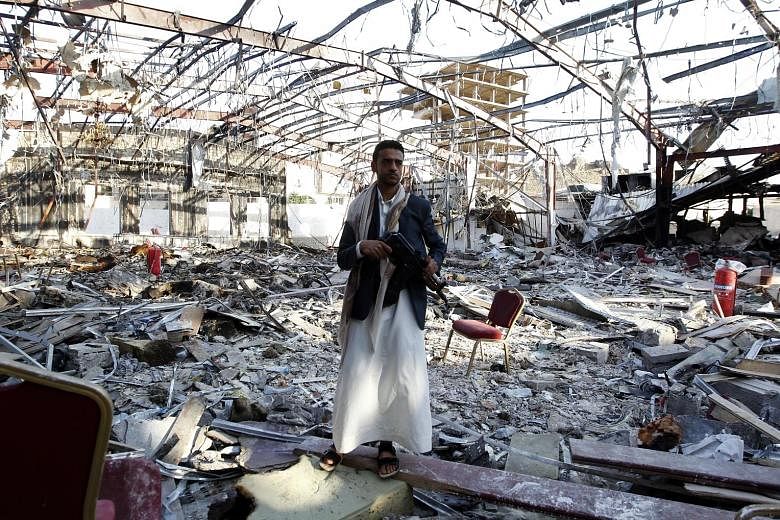JERUSALEM • After a presidential campaign dominated by reality show-style insults and put-downs, the winner of next month's election in the United States will wake up the following morning to find a far more daunting reality: a Middle East awash with conflict and disarray, desperate for US leadership.
The 45th president will inherit problems associated with the region vastly more challenging than any in a generation, as the old order has given way to a mix of alliances, rivalries and overlapping crises.
Syria, Iraq and Yemen are caught up in war. Turkey and Jordan are inundated by refugees. Russia has reasserted itself as a major player in the region. Libya is searching for stability after the fall of its long- time dictator. The Kurds are on the march. Egypt is fighting off a terrorist threat. And Saudi Arabia and Iran are waging a profound struggle for the future of the region.
"In truth, the Middle Eastern order is so fragmented right now that grand visions are utterly unrealistic, if they ever were (realistic)," said Mr Emile Hokayem, a senior fellow at the International Institute for Strategic Studies based in Bahrain.
In the region, the US is seen as disengaging itself under President Barack Obama, who, beyond fighting the Islamic State in Iraq and Syria (ISIS), has been reluctant to be drawn into the swirling forces shaping the Middle East. His "politics- free security approaches", Mr Hokayem said, have left some hoping for a stronger hand from Washington.
Like others in the region, Israeli Prime Minister Benjamin Netanyahu has spent a lot of time lately expressing concern to visiting Americans about the consequences of a US retreat from the region. He has visited Moscow several times in the past year, not because he prefers Russia to the US, his advisers said, but because the Kremlin is filling a vacuum left by Washington.
"What the region sees now is American weakness," said Professor Efraim Inbar, founding director of the Begin-Sadat Centre for Strategic Studies near Tel Aviv. But that should not necessarily mean an expansive US military presence, he added. Indeed, there is little appetite in the region for a return to the more interventionist policies of former US president George W. Bush.
Mr Obama certainly inherited a messy situation with the war in Iraq. But by the time he took office, Mr Bush's troop surge and General David Petraeus' strategy change had helped turn the war around to the point that Mr Bush felt free to negotiate a three-year withdrawal plan that Mr Obama then followed.
Like Mr Bush before him, Mr Obama should leave his successor with an improved military situation as US-backed Iraqi, Kurdish and Syrian rebel forces retake ISIS territory.
But the Middle East remains torn by many other conflicts. The Arab Spring revolutions of 2011 failed to deliver democracy - except perhaps in Tunisia - instead upending traditional structures and touching off a civil war in Syria.
Mr Obama has defended his resistance to being dragged deeper into the Syrian war, arguing that it would only enmesh the US in yet another bloody quagmire.
But even if the next president imposes a no-fly zone, as Mrs Hillary Clinton has promised, or aligns more closely with Russia, as Mr Donald Trump has suggested, the political cross-currents will remain treacherous.
The US has encouraged its Kurdish allies to press the fight against ISIS, but not to progress so far that they provoke Turkey, another US ally. Egypt and Saudi Arabia ostensibly are on the same side in the Syrian civil war, but tensions flared this month when the Saudis halted fuel shipments to Egypt and the Egyptians backed a Russian-sponsored United Nations resolution on Syria that Saudi Arabia opposed.
All over Washington, DC, foreign policy specialists have been crafting suggestions for the next president to consider in the Middle East. Most of them are predicated on the bipartisan conclusion that Mr Obama's approach to the region has not worked and requires a reboot.
Mr James Jeffrey, former deputy national security adviser to Mr Bush and an Obama ambassador to Iraq, said the Middle East had gone from being a "knowable" security problem that could usually be contained to one that was "seemingly in free fall". He added: "We can't fix it. If it is fixable at all, only the locals will manage that in their own time and our interventions risk being counterproductive."
NYTIMES

